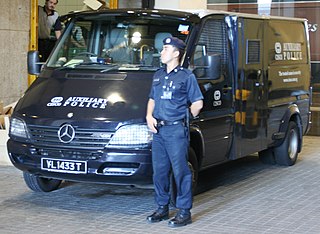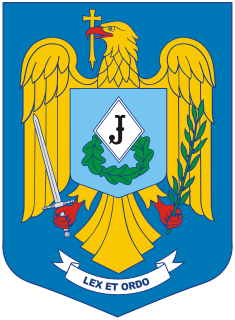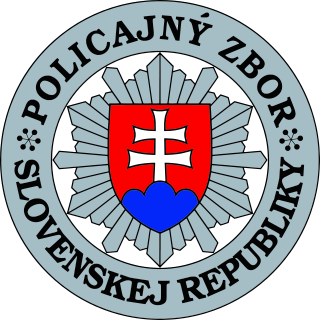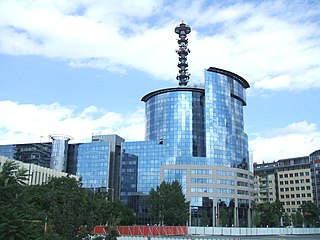Duties
The RBSZ is a kind of special police force that supports traditional police forces very often. It was created with the integration of four formerly independent police forces (Mounted Squads of the Budapest Police Department, State Highway Patrol, Riot Police, and Special Messenger Service). Therefore, control of state highways, riot police assignments and messenger assignments between police services belong to the sphere of authority of RBSZ, but its sphere of authority is much wider.
The members of the organisation often patrol together with the members of local police forces, mainly in Budapest, capital city of Hungary. Furthermore, RBSZ-policemen guard the main government buildings and airports. Other than this, the police force has several counter-terrorist squads. The uniform of the RBSZ is often different from that of traditional Hungarian policemen; they are much more soldier-like, therefore they can often be recognised. However, regulation is not so strict, which is why one might see RBSZ-policemen in traditional uniforms; for example wearing baseball hats, in which they are less soldier-like.
It must be mentioned that although RBSZ are the police force in Hungary that is similar to Western-European gendarmeries, there is a special police force in Hungary, the independent Border Guard Service (also subordinated to the Ministry of Justice), that has squads the members of which are trained as soldiers and in case of war they get subordinated to the Army and the Ministry of Defence. That is why many say that Hungarian Border Guard Service is more similar to gendarmerie-type police forces than RBSZ, but it is true only regarding the military duties of Hungarian Border Guards.

The Sammarinese Armed Forces refers to the national military defence forces of the country of San Marino. It is one of the smallest military forces in the world, with its different branches having varied functions including: performing ceremonial duties; patrolling borders; mounting guard at government buildings; and assisting police in major criminal cases. There is also a military Gendarmerie which is part of the military forces of the republic. The entire military corps of San Marino depends upon the co-operation of full-time forces and their retained (volunteer) colleagues, known as the Corpi Militari Volontari, or Voluntary Military Force. National defence in the face of an aggressive world power is, by arrangement, the responsibility of Italy's armed forces. The component parts of the military are distinguished by distinctive cap badges, one each for the Fortress Guard (uniformed), Fortress Guard (artillery), Guard of the Council, Uniformed Militia, Military Ensemble (band), and Gendarmerie. There is no compulsory service, however under special circumstances citizens aged 16 to 55 may be drafted for the defence of the state.

The Chinese People's Armed Police Force is a Chinese paramilitary police (Gendarmerie) force primarily responsible for internal security, law enforcement, and maritime rights protection in China, as well as providing support to the PLA Ground Force during wartime.

Military police (MP) are law enforcement agencies connected with, or part of, the military of a state.

The Israel Border Police is the gendarmerie and border security branch of the Israel National Police. It is also commonly known by its Hebrew abbreviation Magav, meaning border guard; its members are colloquially known as Magavnikim. Border Guard is often used as the official name of the Israel Border Police in English. While its main task is securing Israel's borders, it has also been deployed in assisting the Israel Defense Forces, and for counter-terrorism and law enforcement operations in the West Bank, as well as in Jerusalem.

Bundesgrenzschutz was the first federal police organization in West Germany after World War II. Established on 16 March 1951 as a subordinate agency of the Federal Ministry of the Interior, the BGS was renamed the Bundespolizei on 1 July 2005 to reflect its transition to a multi-faceted police agency with control over border, railway and air security. This was controversial due to the German constitution expressly granting law enforcement power to the states. The fact that the border guard function was so limited allowed its formation notwithstanding this restriction, however in the modern day it has become a fully fledged police force.

Law enforcement in France has a long history dating back to AD 570, when night watch systems were commonplace. Policing is centralized at the national level. Recently, legislation has allowed local governments to hire their own police officers which are called the "police municipale".

Auxiliary police, also called special police, are usually the part-time reserves of a regular police force. They may be armed or unarmed. They may be unpaid volunteers or paid members of the police service with which they are affiliated. In most jurisdictions, auxiliary police officers are empowered to make arrests for crimes that occur in their presence.

The Koninklijke Marechaussee, the Royal Netherlands Marechaussee, abbreviated to KMar, is one of the four Services of the armed forces of the Netherlands. It is a gendarmerie force performing military police and civil police duties.

Military Police are a type of preventive state police of the states and of the Federal District of Brazil. The Military Police units, which have their own formations, rules and uniforms depending on the state and the Federal District, are responsible for maintaining public order across the country. Deployed solely to act as a deterrent against the commission of crime, units do not conduct criminal investigations. Detective work, forensics and prosecutions are undertaken by a state's Civil Police.

A border guard of a country is a national security agency that performs border security, i.e., enforces the security of the country's national borders. Some of the national border guard agencies also perform coast guard and rescue service duties.

The Jandarmeria Română is a military police force of Romania tasked with high-risk and specialized law enforcement duties. It is one of the two main police forces in Romania, both having jurisdiction over the civilian population.

The National Gendarmerie is one of two national police forces of France, along with the National Police. It is a branch of the French Armed Forces placed under the jurisdiction of the Ministry of the Interior—with additional duties to the Ministry of Defense. Its area of responsibility includes smaller towns, rural and suburban areas, while the Police Nationale—a civilian force—is in charge of cities and downtowns. Due to its military status, the Gendarmerie also fulfills a range of military and defense missions. The Gendarmes also have a cybercrime division. It has a strength of more than 100,000 personnel as of 2014.

Law enforcement in Slovakia is divided among various agencies under the Slovak ministries of Interior, Justice, Traffic, Defense, Finance and local governments within the Republic. The Slovak Secret Service, one out of four secret services in the country, also lists among its tasks those usually reserved for the police force, for example fighting against organized crime and computer crime, Slovakia also features voluntary police without any extra rights.

Law enforcement in Hungary is split among the Police and Border Guards, and the Customs and Excise Authority. Since 2006, the Police has been subject to the Ministry of Justice, when the Ministry of Interior was re-structured to deal with Municipalities and Regional Development. Due to Hungary's accession to the Schengen Treaty, the Police and Border Guards were merged into a single national corps, with the Border Guards becoming Police Officers. This merger took place in January 2008. The Customs and Excise Authority remained to be subject to the Ministry of Finance.

The Federal Gendarmerie was an Austrian federal law enforcement agency. It was responsible for approximately two thirds of the population on approximately 98% of Austrian national territory, alongside the Federal Safety Guard Corps .(Bundessicherheitswachekorps) and Detective Corps (Kriminalbeamtenkorps). All Austrian law enforcement agencies were merged into the Federal Police (Bundespolizei) agency, with effect from 1 July 2005.
The Romanian Military Police is the military police of the Romanian Armed Forces. It was formed in 1990, immediately after the Romanian Revolution, although the Romanian Gendarmerie performed military police duties between 1850 and 1949.

Law enforcement in Poland consists of the Police (Policja), City Guards, and several smaller specialised agencies. The Prokuratura Krajowa and an independent judiciary also play an important role in the maintenance of law and order.

Law enforcement in the Netherlands is provided by the National Police Corps, divided in ten regional units and a central unit, and the Royal Marechaussee, a gendarmerie. Law enforcement in the Netherlands operates primarily through governmental police agencies. The law-enforcement purposes of these agencies are the investigation of suspected criminal activity, referral of the results of investigations to the courts, and the temporary detention of suspected criminals pending judicial action. Law enforcement agencies, to varying degrees at different levels of government and in different agencies, are also commonly charged with the responsibilities of deterring criminal activity and preventing the successful commission of crimes in progress. The police commissioner in The Netherlands is Erik Akerboom since March 1, 2016.

The National Guard Forces Command of the Russian Federation is the gendarmerie component of the National Guard of Russia, created through a presidential decree on April 5, 2016. It is a gendarmerie organized on paramilitary lines with its mission to ensure public order, national security and defense against terrorism.

















